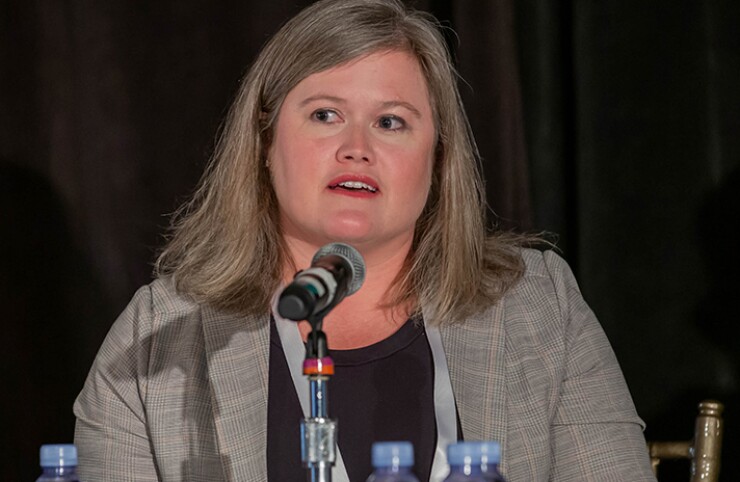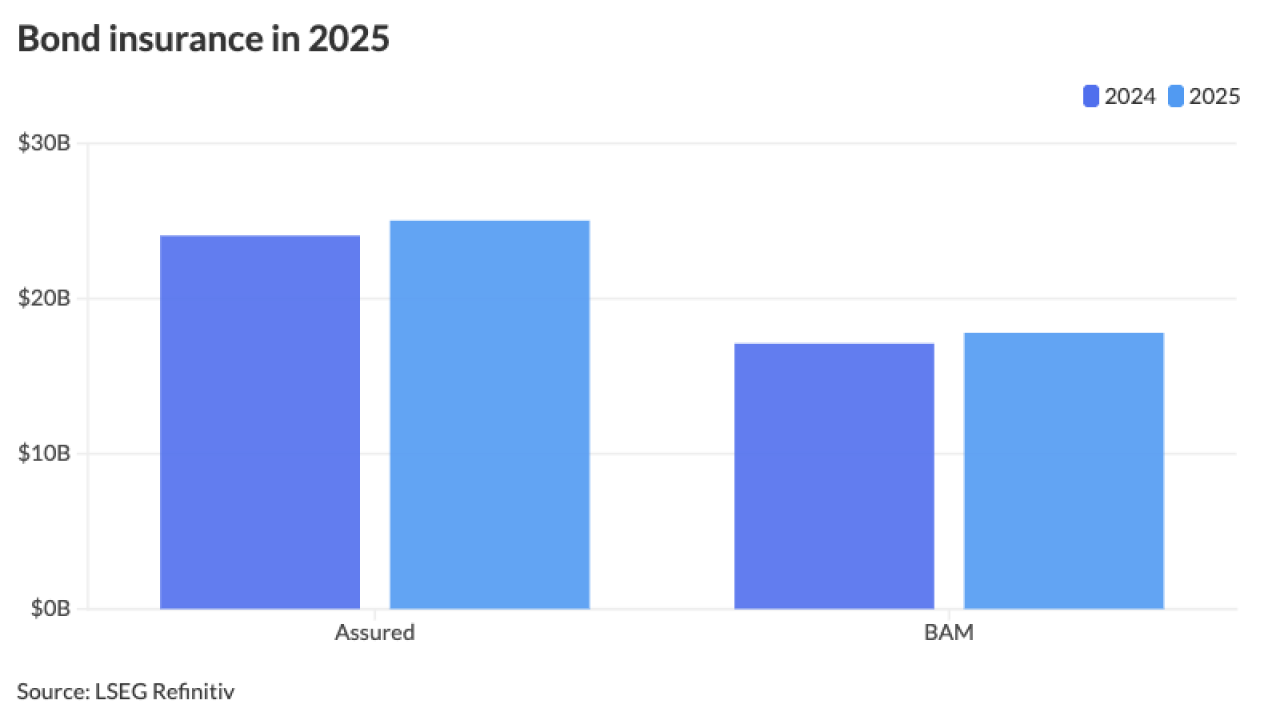The fall of Silicon Valley Bank and Signature Bank, the second and third largest bank failures in U.S. history, will likely force regulators to take a closer look at depository institutions and their related affiliates and is prompting a Dodd-Frank like scenario where muni leaders may be called to testify in front of Congress to provide critical information about public finance.
While emergency measures taken by the Federal Deposit Insurance Corporation have prompted markets to stabilize and have so far largely avoided causing
"They're going to have to re-look at asset structures and structural integrity of depository institutions," said Emily Brock, director of the federal liaison center at the Government Finance Officers Association. "I think that there are a lot of questions about issuers of securities because those provide the integrity of the depository."

One piece of legislation currently under the spotlight is President Trump's 2018 Economic Growth, Regulatory Relief and Consumer Protection Act, which relaxed regulations put up by Dodd-Frank and exempted from certain regulations dozens of banks under a $250 billion asset threshold.
While the bill lowered the liquidity threshold for many institutions including Silicon Valley Bank, the bill also reclassified municipal bonds as high-quality liquid assets, a measure that muni leaders and lobbyists all pulled for. The issue was considered important for muni leaders in encouraging banks to hold muni bonds, and classifying munis as HQLA allowed banks to use certain municipal debt to help meet their liquidity requirements.
And just as muni leaders were forced to testify before Congress during the 2008 financial crisis, during related Dodd-Frank regulation discussions and during discussions to reclassify municipal bonds as high-quality liquid assets, muni leaders will likely be called in front of Congress again.
"Certainly, they're going to look at the assets structures and how they, how they can be liquid and liquidated in stressful times," Brock said. "The question is, who is going to be asked to come to the floor to have this discussion and are there going to be structural integrity issues?"
In the wake of this collapse, Moody's Investors Service has already lowered its outlook for the entire U.S. banking system and placed six U.S. banks on review for potential credit rating downgrades.
The Silicon Valley Bank case may be a case of poor liquidity management but the fact remains that the bank was holding a lot of long-term fixed rate assets, mostly Treasury bonds, the value of which has fallen as interest rates have risen.
"2022 was the worst performing year for the U.S. bond markets in history," said Michael Decker, senior vice president for research and public policy at the Bond Dealers of America. "I think that any investor, who was holding long term fixed rate assets throughout the year last year, saw a decline in value."
Following the reclassification of municipal bonds as HQLA, Jacob Ott, a professor at the University of Minnesota, in a paper presented at the 9th Annual Brookings Municipal Finance Conference in 2020 found that changing the measurements used in bank liquidity management can have spillover effects.
He found that "classifying a general obligation municipal bond as a high-quality liquid asset in the regulatory accounting for the liquidity coverage ratio has a spillover effect by influencing municipal market behavior," the paper said, and that the reduction in financing costs of general obligation bonds appears to influence municipalities issuance decisions. He also noted that some indirect evidence points to a change in banks' investment behavior.
But Decker declined to draw any immediate conclusions as to how a regulatory response might affect municipal bonds or the muni market specifically.





